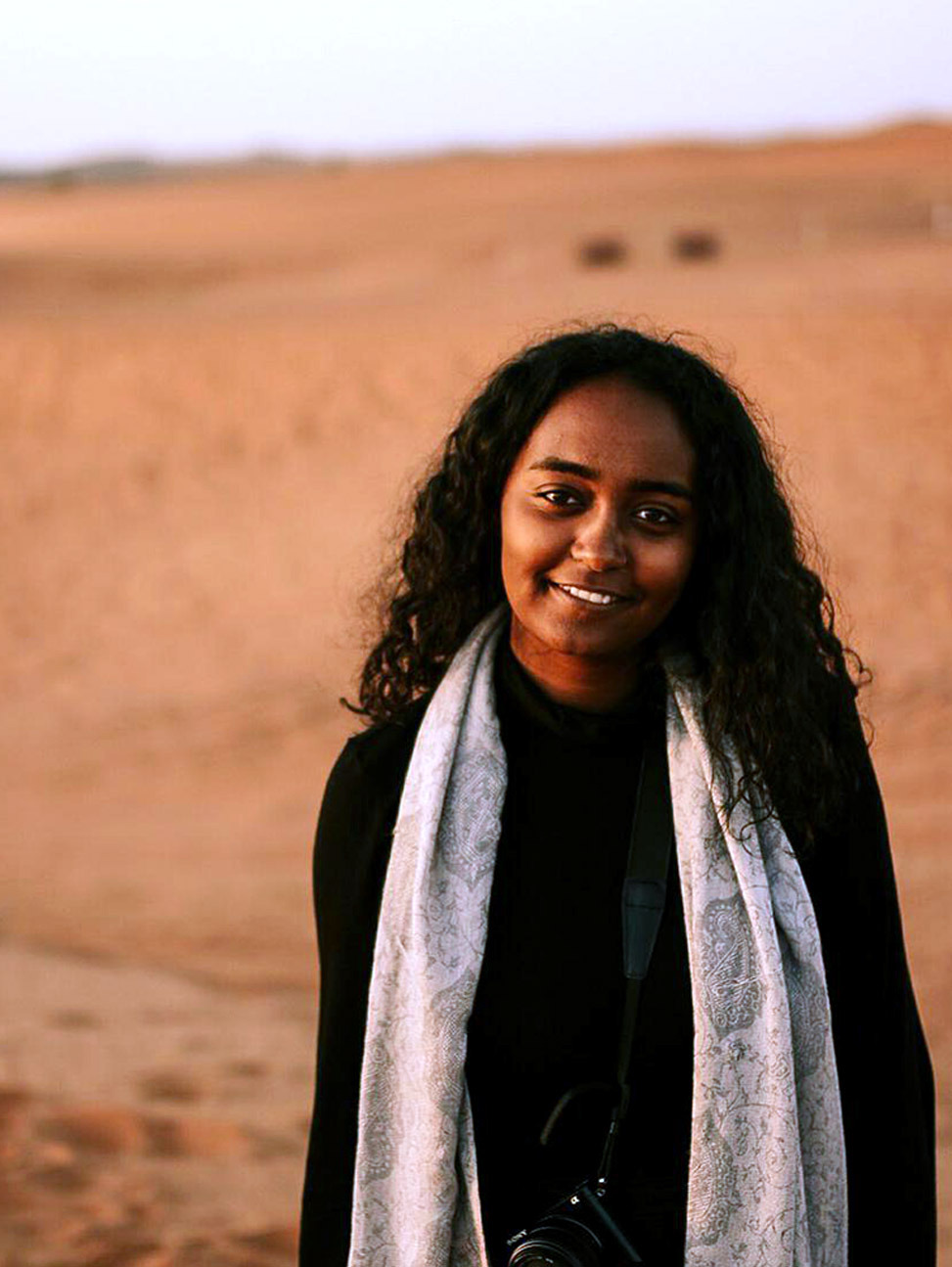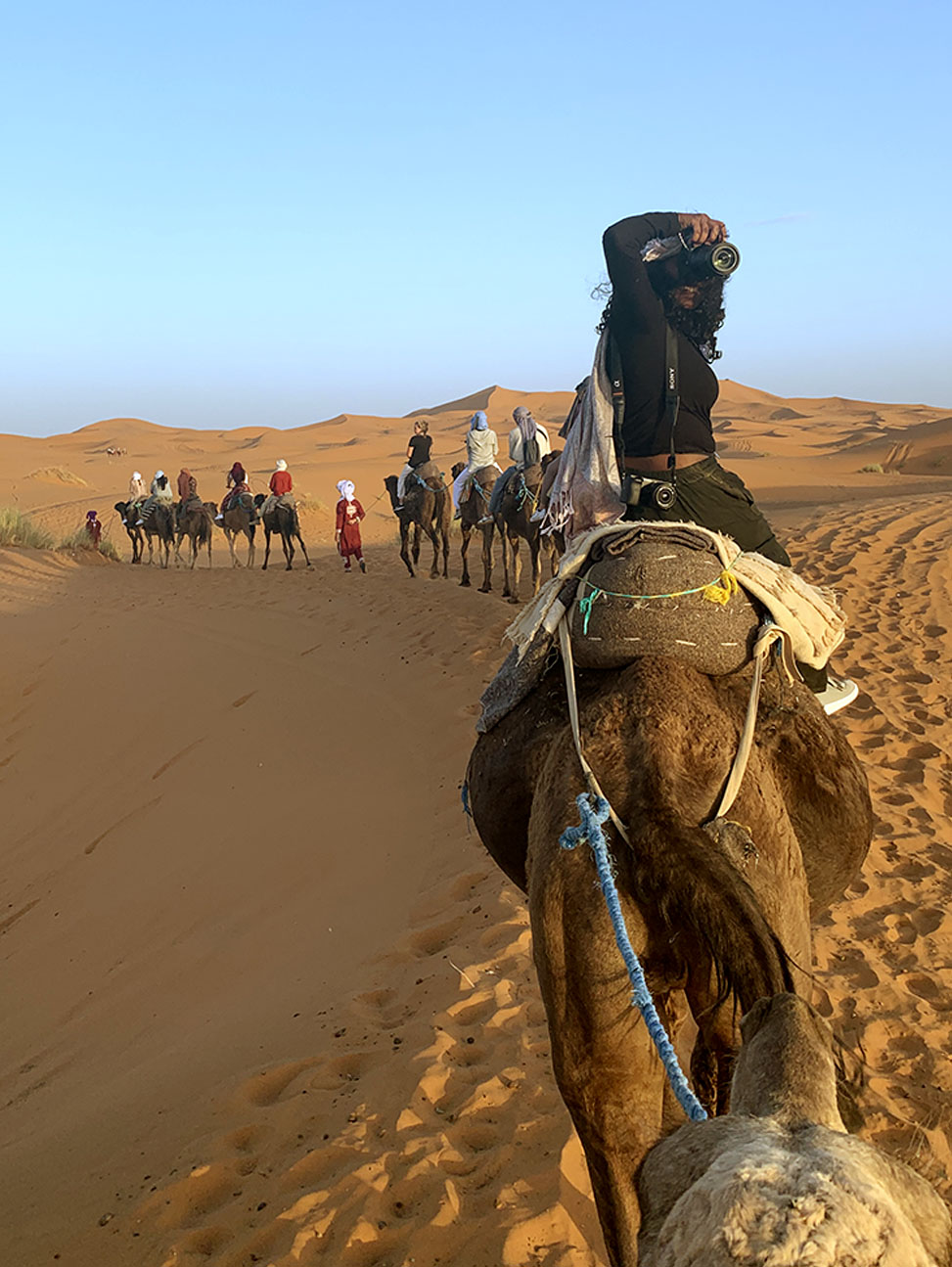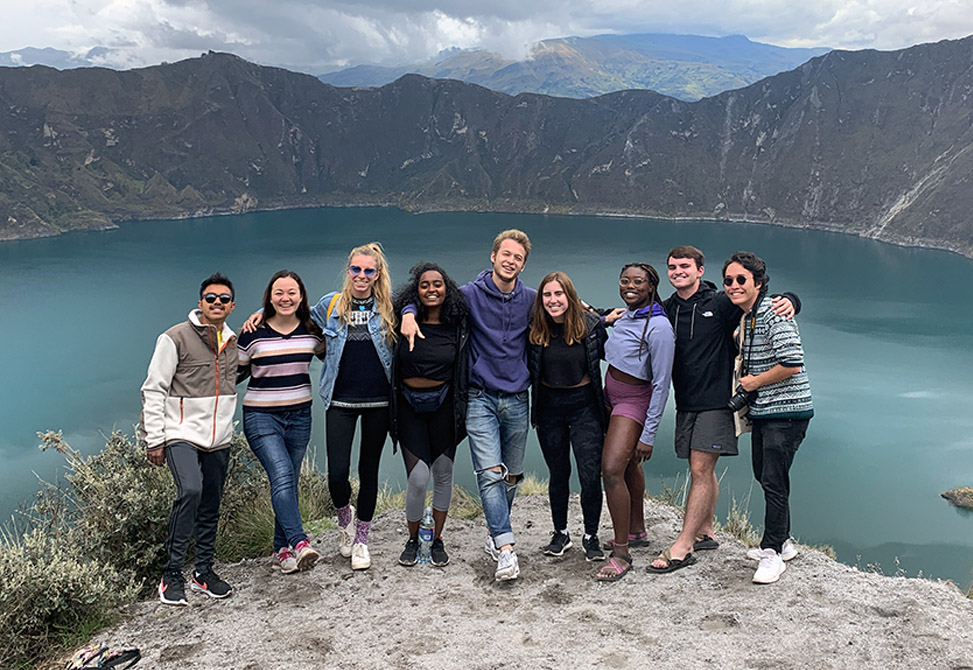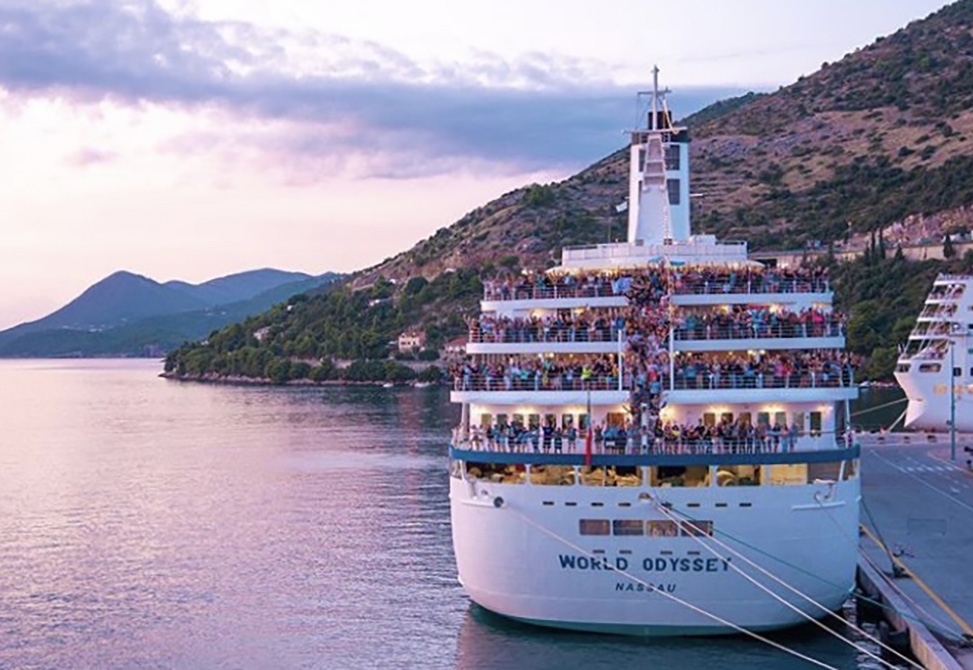Hanna Wondmagegn
About My Study Abroad Program
Major/Minor: Photojournalism and Food Studies
Program: Semester at Sea
Location: Semester at Sea: The Netherlands, Poland, Spain, Portugal, Croatia, Morocco, Ghana, Brazil, Trinidad and Tobago, Ecuador and Costa Rica
Email: hannawon@live.unc.edu
Term: Fall 2019
Why did you choose to study abroad and how did you select your program?
My whole life I have wanted to travel all over the world and move beyond what I was comfortable with and into intentional discomfort which I believe is the best way to learn. At the time, I had already committed to going abroad in the summer of 2019 in Rome, Italy and I was encouraged by my boss (who had done Semester at Sea) to look into the program because she knew what my passions were and thought it fit me perfectly. After looking at the itinerary and the classes offered, I knew that this program would fit me the best but I didn’t know if I could successfully coordinate two programs back to back. I decided to at least apply to keep my options open and when I got accepted, I started to work on making it a reality. I also really wanted to experience what it felt like living in a different country for an extended amount of time - which was my experience in Italy - as well as experience what it was like to experience traveling around countries that differed from the one I went to before. At the time, Semester at Sea looked like the best program for the latter reason and I can now confirm that it was in fact the best program that I could have ever done.
As a photojournalist interested in working on stories around the world, Semester at Sea provided a great opportunity to experience what it was like to jump around different countries for a short period of time and learn how to respectfully and ethically engage with and document people, culture, places and more all over the world. I definitely learned a lot of practical and logistical skills as it relates to the field and I gained a lot of confidence in my abilities and my decision to pursue this path.
What did you learn about yourself?
I learned so much about who I was as a person and how I wanted to move through the world. I learned that I am very adaptable which is necessary when you are constantly moving around to different countries. I learned how to be confident and how to exist comfortably in a state of discomfort (which I also learned is scary but so much fun). I learned how to talk, listen and build connections when language wasn’t the first medium to do so. I learned how to be intentional and I also learned about what I truly valued as an individual and what my place was in the world.
I also practically learned how to plan individual and group travels, book transportation and housing, handle finances, not lose my passport, handle different types of crises in different countries and other random and quirky knowledge that you can only gain through traveling and make for great stories.
What is one of your favorite memories from your program?
Every second was a memory I cherished but there is one memory I always tell every single person about. It was when we were in our 6th country and 2nd continent: Morocco. A group of people from Semester at Sea (SAS) decided to do independent travel and we did a four-day tour of four cities around Morocco. We spent one of the nights in an Amazigh camp in the middle of the Sahara Desert that we reached by a camel trek at sunset. Coincidentally later that night, we were joined by two other groups of independent travelers from SAS and we were all sitting in the sand, learning how to play the drums from locals. All of a sudden, this big light appears behind a sand dune and one of my friends wondered aloud if it was the moon. I didn’t believe him because the light was so close and it was incomprehensible to me that the moon could be that close. He then goes to the top of the dune to check and comes sprinting down confirming it was the moon. This led to a mass sprint of over 30 people running and slipping up the sand dune. We all reached the top and there was a hush of silence as everyone stared in awe at the moon that seemed so close you could touch it. Then someone said “look up” and we did only to see the sky completely covered in stars. People started laying down, hugging their friends and crying at the complete beauty of the milky way and the universe. I will never forget what it felt like to lay there under the stars with people I didn’t know a few months ago but who I now called friends as the realization of everything I had experienced and everything I still had ahead of me gently flitted across my eyes the way the stars glowed in the sky. That is a memory I will cherish for the rest of my life.
What advice do you have for future study abroad students?
Start. Everything. Early. Especially when it comes to scholarships. I managed to get everything fully covered and that was because I spent hours writing essays and searching for scholarship money either offered by the program, by UNC and different departments or third party scholarships from organizations around the world. There is money waiting for you to claim it and chase after your dreams but it requires a lot of planning, writing and rejection emails. I can attest that every hour of applications was 100% worth it. So definitely start early and apply to everything from as small as $50 to more.
Would you do it again?
If I could, I would do it every single semester and for the rest of my life after that. It sounds cliche but it was truly life-altering and I couldn’t have asked for anything better.
How were your classes abroad different than if you would have taken them at UNC?
Classes on Semester at Sea are very different from classes at UNC in many ways. The classes I ended up taking were Global Studies (required for all students), Contemporary Race-Ethnic Relations, African and African-American Diaspora, Food and Society and Film, Photos and Empathy: Challenging the Single Story. The curriculum of every class offered is structured around the countries we are traveling too which makes for more applications and connections of class knowledge to the real world. This meant that as we went from one country to another, we would learn about our class subject and its applications and relevance in the country we were going to and how it differed and/or compared to the country we had just left. For example, on the way to Croatia, we looked at how race and ethnicity played a role in the Yugoslavian wars while in another class, we would explore the contributions made of African or African diasporic populations in Spain or Morocco or Ecuador. Every class also requires homework for each country you are going to: for my African and African-American Diaspora class, we were tasked with documenting signs of global African and/or Black presence and contributions whole for food and society, we would take photos of the foods we would consume and interview different people in the food sector about food culture and practices.
Additionally, every class has what is called a “field program” which is essentially a one-day field trip that you would take with your class in one specific country that relates to the course content: in Costa Rica, my Film class visited a group that worked to use storytelling to change systems, in Ecuador my African and African-American Diaspora participated in a cultural exchange with Afro-Ecuadorian university students and for my food class we visited a shrimp and crab farm as well as a Hacienda that produced chocolate in Ecuador.
All the classes I took, I could have taken at UNC but by doing them through Semester at Sea, I actually got to see how what I was learning applied to the real world. This made the content more interesting than just reading a book and attending a large lecture and also better enriched my experience and quality of work I produced for the classes.
How do you identify?
Student of color, First Generation College Student, Covenant Scholars, Scholarship Recipient
Could you share any experiences where your identity played a role in your time abroad?
Being a woman of color and traveling to different countries where one or both of those identities were either not physically present, not supported or in danger was a genuine challenge and reality I faced in almost every country we went to. There was a lot of preparation and research I had to do on my own about the history of the countries we were going to as it related to social and cultural relations, current political structures and how that influenced everyday interactions related to my identities, the presence and power (or lack thereof) of women and/or person of color (POC) and other factors that would affect me. I found that doing that research helped me understand what I was going to be potentially going in to and prevented any significant blind-sides when we were traveling in-country (although there were still a couple of experiences that blind-sided me).
Is there any advice you would give to other students who share your identity?
I would recommend identifying and reaching out to resources in the program you are going to before you attend the program as well as once you get there. Even if you feel like you don’t need it, it’s always nice to have someone or something there that you know you can reach out to or talk to. _x000D__x000D_I also recommend identifying your boundaries and establishing self-care routines. In my experience, traveling as a person of color (POC) to countries where POC may not be as visible or where my safety was threatened or not as guaranteed was genuinely exhausting and I found myself struggling a lot, especially in the beginning when we were in Europe. I learned when I needed to take a step back for myself (and to not feel guilty for doing so) and I learned how to handle any feelings of anger, rejection, hurt and more through different mediums. This meant taking a day for myself either on the ship or in-country to do what refilled my cup. This meant journaling, drinking some tea, hanging out with friends, watching movies, reading a book and more. Establish some type of constant that you can return to when it feels like your world was shaken up. _x000D_
If you faced any challenges abroad, where could you turn to get the support you needed?
I turned to different affinity groups on the ship that related to my identity such as the Black Student Union. I also turned to staff and friends that I trusted on the ship who were experiencing similar challenges I would face. _x000D_
Memories




